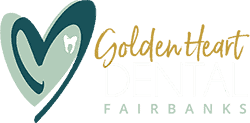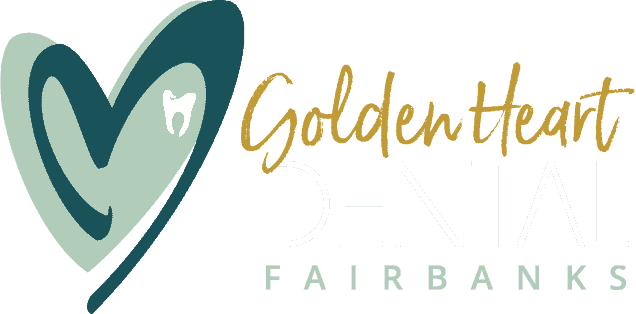Sleep apnea is a dangerous medical condition in which you can temporarily stop breathing up to several times per hour during the night.
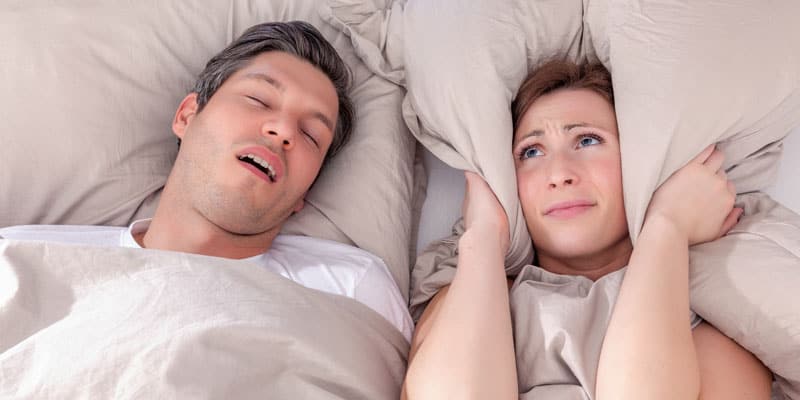
Sleep apnea is a medical condition that causes interruptions in regular breathing during sleep. These interruptions typically only last a few seconds (though they can last up to a minute), and they can occur several times per hour throughout the night.
It’s a potentially dangerous health condition and many individuals who have some form of sleep apnea (Obstructive Sleep Apnea, Central Sleep Apnea, or Hybrid Sleep Apnea) aren’t aware of the impact it has on their health.
There are three types of sleep apnea, and each type affects the respiratory system differently. Obstructive Sleep Apnea (OSA), is the most common type, and it occurs when some type of physical blockage occurs in the mouth and airway. Central Sleep Apnea occurs when there is some disconnection between the brain and lungs, meaning that the signal to breathe doesn’t always reach the respiratory system. Hybrid Sleep Apnea is a combination of the two more dominant types. Each type requires specific treatment protocols.
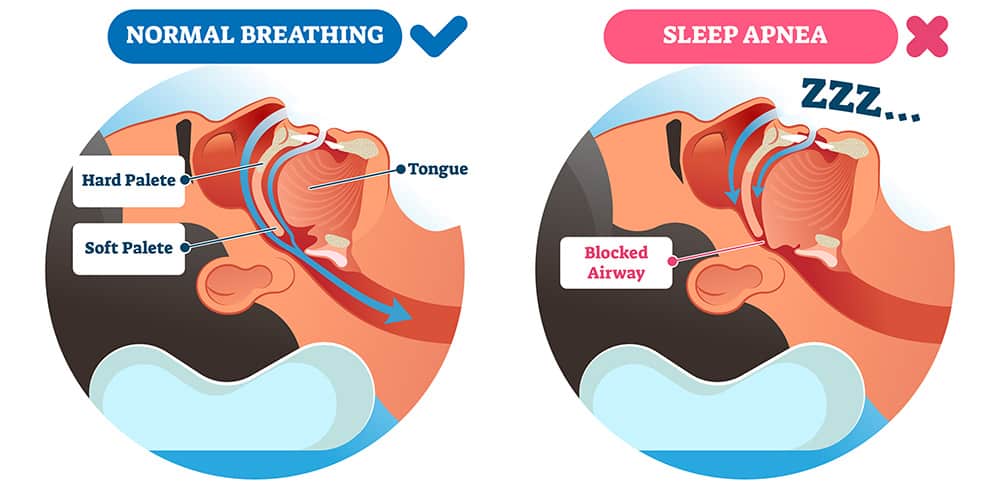
Causes of Sleep Apnea
Usually, sleep apnea is caused or exacerbated by malformations of the mouth, including poorly aligned jaws, tooth crowding, a large tongue, or too much soft tissue in the palate and throat.
Additionally, excessive weight, sleeping positions, alcohol consumption, a deviated septum, or other medical conditions that affect the airway are risk factors for developing sleep apnea.
The Impact of Untreated Sleep Apnea
Sleep Apnea can be the cause or a contributing factor to:
- Weight gain not explained by poor diet or lack of exercise
- Anxiety, irritability, depression, and other mood disturbances
- Not feeling rested when you wake up in the morning and feeling tired during daytime hours
- Morning headaches
- Difficulty concentrating
Sleep apnea can be especially problematic for those with certain medical conditions, including diabetes, heart disease, high blood pressure, and a previous stroke. The frequent interruptions in breathing not only reduces the quality of sleep, but can impact the immune system, raise blood pressure even higher, and contribute to the severity of heart disease and diabetes.
The Symptoms of Sleep Apnea
Many people who suffer from sleep apnea are not aware of it due to the main feature of the condition occurring during sleep. However, there are several signs and symptoms of sleep apnea that are present during the day. Additionally, housemates or family members may notice the effects that you might miss.
If you have untreated sleep apnea, you may experience:
- Loud snoring
- Gasping during sleep
- Morning headaches
- Difficulty concentrating
- Daytime fatigue
- Dry mouth upon waking
- Bed wetting, in some cases
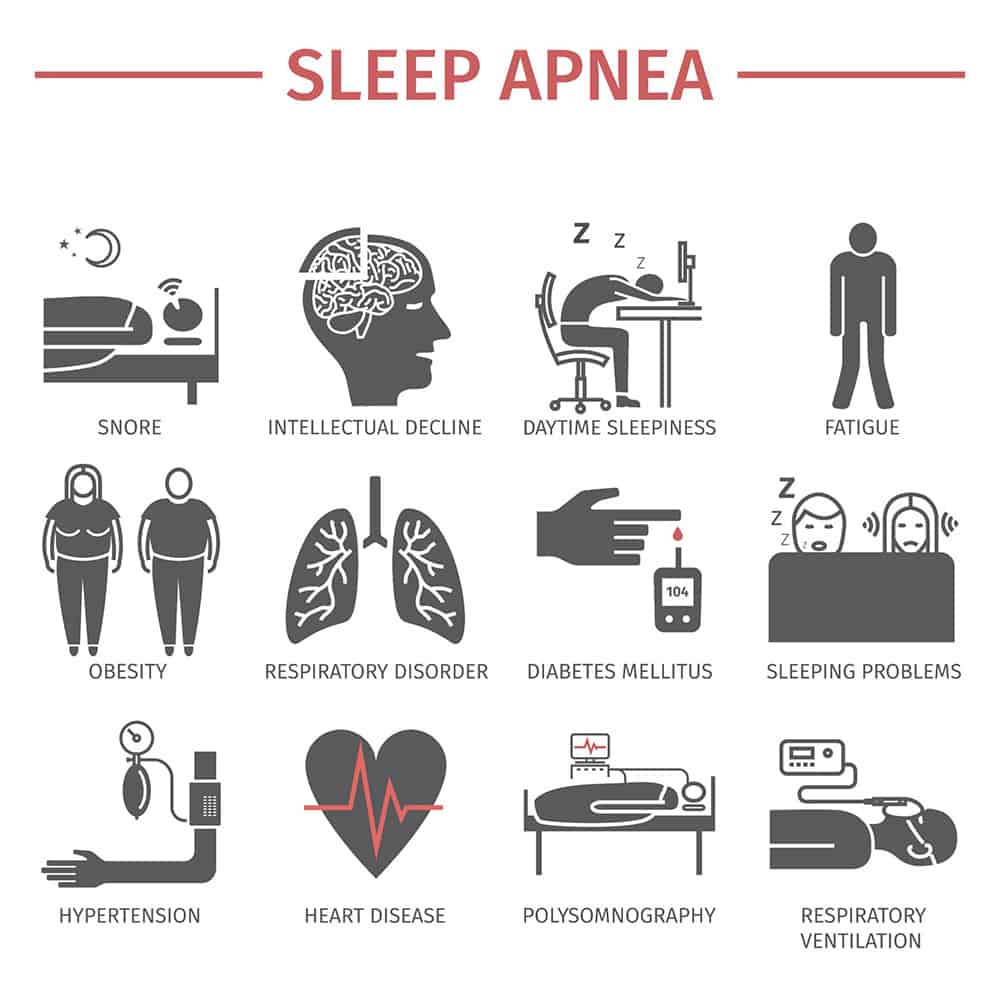
The Symptoms of Sleep Apnea
Sleep Apnea Treatment Options
(Note: Current medical treatments don't work for everyone)
Sleep doctors typically prescribe a CPAP mask that patients wear that forces oxygen into the nose to keep breathing consistently throughout the night. CPAP stands for Continuous Positive Airway Pressure. The downside to a CPAP machine is that it is a cumbersome and noisy machine, which interferes with some people’s ability to sleep as soundly as they’d like.
Dr. Miller can help you treat the underlying cause of sleep apnea and reduce or even eliminate the need to utilize a CPAP or oral appliance for the rest of your life. At Golden Heart Dental we are treating patients of all ages with a proprietary, non-invasive, nonsurgical treatment option for the treatment of mild to moderate sleep apnea, snoring, and sleep-disordered breathing.
Your sleep apnea may be the result of an obstruction in the airway caused by narrow dental arches and/or an underdeveloped jaw.
"In 98% of patients with OSA, the condition is due to abnormal anatomical features of the soft tissues and/or the structure of the maxillomandibular skeleton that cause a 'disproportionate anatomy' of the airway."--ARCH OTOLARYNGOL HEAD NECK SURG/VOL 137 (NO.10), OCT 2011.
Dr. Shawn Miller DDS and the team at Golden Heart Dental provide sleep apnea treatment in Fairbanks, AK. We often serve patients coming from the Fairbanks, Ester, and North Pole area of east-central Alaska. Call us today at 907-328-0868 or request an appointment.
